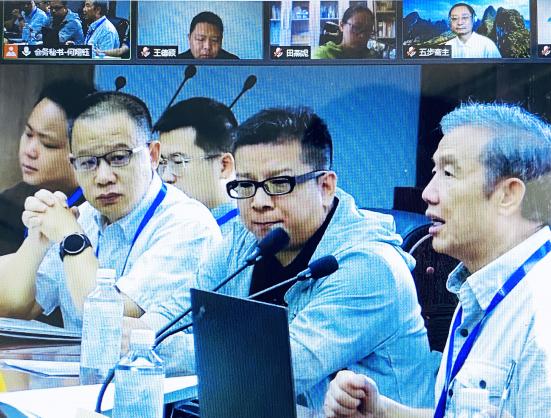An academic symposium themed “Individuals, Organizations, and Cultures Spanning across China and the West” was held on September 25 in Shanghai.
Held by the Shanghai Society of History and the history faculty of Shanghai University, the conference was opened by Professor Tao Feiya’s keynote speech “Reflections on China-West Cross-Cultural History Studies”. As a respected professor of history at Shanghai University, he drew on his research experience in China’s religion and society in modern and contemporary times.
The one-day conference was as well conducted online since some speakers were unable to show up due to the COVID-19 travelling restrictions. A total of 28 lectures were given, focusing on the cultural exchange between China and the West in modern times from different perspectives. Some searched into the literature, such as “Looking at the Development of China’s Modern Medicine from Family Letters”, “From Manila to Shanghai: The Rise and Decline of The Far Eastern Review”, and “Sacred Edict of The Kangxi Emperor and How It was Preached in Qing Dynasty”.
Many lectures touched upon the interaction between China and the West in relation to Christianity, such as “Christianity and Modern Chinese Intellectuals”, “Matteo Ricci's Approach to Chinese Culture and Cross-cultural Communications”, “The Chinese History Writing by Christian Missionaries in Modern China and Its Evolution”, and “Significance of Adjustment: Missionary Home-returning Vacation System”.
Among the many Christianity-related topics, some reviewed the attempts to localize Christianity in China.
Yu Qiang from Zhejiang Academy of Social Sciences shared the story of a Chinese lay Christian Ruan Qiyu in his report “An Intermediary Between Cultures: Record of A Hangzhou Christian”: “Ruan was trained in medicine and later worked as a newspaper editor, and he served as an intermediary between the traditional Chinese medicine and Western modern medicine. In terms of faith, he became a Christian under the influence of David Duncan Main from the Church Missionary Society. Later, he renounced denomination in public and debated with the Anglican church, where we saw that he declared and promoted Christianity localization.”
Tian Yanni, a scholar from Jilin University, talked about how a female Christian impacted the localization of Christianity in her report titled “Dora Yu and Chinese churches’ revival in the early 20th century”. She reviewed that just as the Christian revivals in the UK and USA which lasted one and a half centuries greatly influenced the development of Christianity, the revival of Chinese churches in the first half of the 20th century was also an important movement in the history of Christianity in China. By studying Yu’s autobiography and other literature, Tian searched into her life and contributions, particularly her life as the earliest evangelist who broke away from the support of mission society and became independent.
“A major ‘fruit’ of Dora Yu’s work was Watchman Nee, who converted to Christianity after hearing her preaching in 1920 and contributed to revivals in China’s local churches. In the first half of the 20th century, many female Christians like Dora Yu experienced a revival and joined the ministry, bringing extensive and profound impacts to Chinese churches,” she said.
Yang Yuanmeng from Shanghai University delivered a talk named “The Spreading and Development of Christianity in the 19th Century Hainan”. She shared the ministry of the American Presbyterian Mission in Hainan, where they started from learning the local culture and gained rich experience and reflection in serving the Hlai people.
The conference ended with a closing address by Zhang Yongan, dean of the school of literature at Shanghai University.
- Translated by Grace Song












